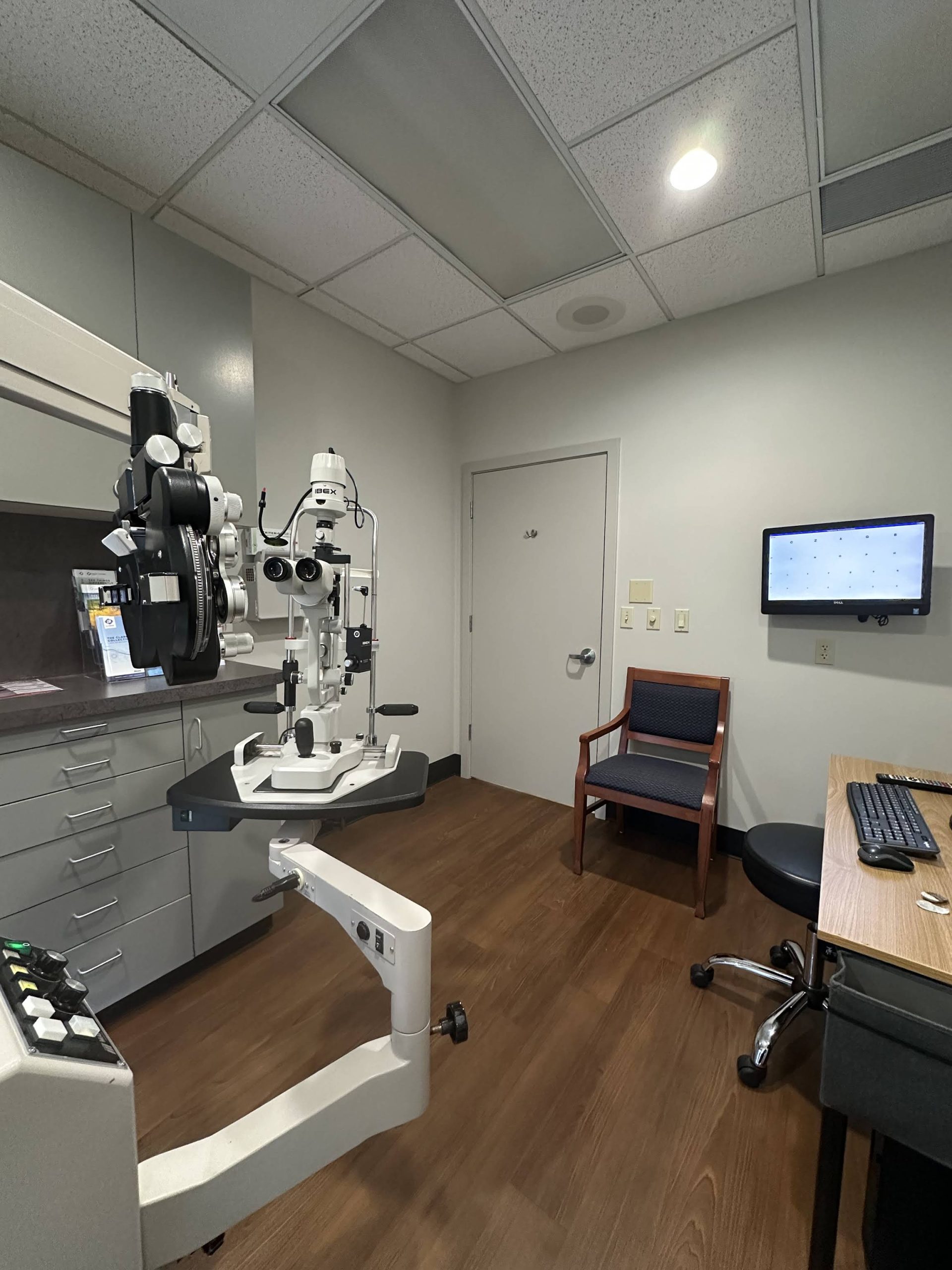 Cataract removal surgery is a common and highly effective procedure that can significantly improve vision for those suffering from cataracts. In Bellevue, WA, residents have access to advanced surgical techniques and experienced ophthalmologists who specialize in this field. This article explores the intricacies of cataract surgery, the benefits it offers, and what patients can expect during the process.
Cataract removal surgery is a common and highly effective procedure that can significantly improve vision for those suffering from cataracts. In Bellevue, WA, residents have access to advanced surgical techniques and experienced ophthalmologists who specialize in this field. This article explores the intricacies of cataract surgery, the benefits it offers, and what patients can expect during the process.
Understanding Cataracts
Cataracts occur when the lens of the eye becomes cloudy, leading to blurred vision and difficulty seeing at night. This condition is often associated with aging, but other factors such as genetics, prolonged exposure to sunlight, and certain medical conditions can also contribute to their development. In fact, cataracts are one of the leading causes of vision impairment worldwide, affecting millions of people. The gradual progression of cataracts can often go unnoticed in the early stages, making regular eye examinations crucial for early detection and management.
Symptoms of Cataracts
Individuals with cataracts may experience a variety of symptoms, including:
- Blurry or cloudy vision
- Difficulty with night vision
- Increased sensitivity to light and glare
- Fading or yellowing of colors
- Frequent changes in prescription glasses or contact lenses
Recognizing these symptoms early can lead to timely intervention and improved outcomes. If you or a loved one is experiencing any of these signs, it is essential to consult an eye care professional. Additionally, some individuals may notice a halo effect around lights or find that their vision improves in dim lighting, which can be misleading and may delay seeking treatment. Understanding the full spectrum of symptoms can empower patients to seek help sooner rather than later.
Causes and Risk Factors
While aging is the primary cause of cataracts, several risk factors can accelerate their formation. These include:
- Diabetes
- Smoking
- Obesity
- Excessive alcohol consumption
- Prolonged exposure to UV radiation
Understanding these risk factors can help individuals take proactive steps to protect their eye health and potentially delay the onset of cataracts. For instance, managing diabetes through diet and medication can significantly reduce the risk of cataract development. Furthermore, wearing UV-blocking sunglasses and hats when outdoors can shield the eyes from harmful rays, while maintaining a healthy lifestyle that includes regular exercise and a balanced diet rich in antioxidants may also contribute to better eye health. Awareness of these factors not only encourages preventive measures but also fosters a deeper understanding of the importance of overall wellness in maintaining vision.
The Cataract Surgery Process
Cataract surgery is typically performed on an outpatient basis, meaning patients can return home the same day. The procedure is relatively quick, often lasting less than an hour, and involves the removal of the cloudy lens and replacement with an artificial intraocular lens (IOL).
Pre-Surgery Preparations
Before the surgery, a comprehensive eye examination is conducted to assess the extent of the cataract and determine the appropriate type of IOL. Patients may also receive instructions regarding medications, fasting, and transportation arrangements for the day of the surgery. It is essential for patients to disclose their complete medical history, including any medications they are currently taking, as this information can influence the surgical approach and recovery process. Additionally, patients may be advised to arrange for a friend or family member to accompany them, ensuring they have support during the post-operative period when their vision may be temporarily impaired.
The Surgical Procedure
During the surgery, the patient is usually given local anesthesia to numb the eye while remaining awake. The surgeon will make a small incision in the cornea to access the lens. Using advanced techniques such as phacoemulsification, the cloudy lens is broken up and gently removed. The IOL is then inserted into the eye. This artificial lens is designed to mimic the eye’s natural lens, providing clear vision at various distances. Surgeons often discuss different types of IOLs with patients prior to the procedure, including monofocal, multifocal, and toric lenses, each catering to specific vision needs and lifestyles.
Post-surgery, patients may experience some discomfort, but this is typically manageable with prescribed medications. Most individuals notice an improvement in vision within a few days, although complete healing may take several weeks. During this recovery period, it is crucial for patients to follow their surgeon’s aftercare instructions closely, which may include using prescribed eye drops to prevent infection and reduce inflammation. Regular follow-up appointments will be scheduled to monitor healing and ensure the IOL is functioning correctly. Many patients are pleasantly surprised by the clarity of their vision after surgery, often remarking on how vibrant colors appear and how much easier daily tasks become without the hindrance of cataracts.
Benefits of Cataract Surgery
The advantages of cataract surgery are numerous and can greatly enhance a patient’s quality of life. Many individuals report a significant improvement in their ability to perform daily activities, such as reading, driving, and enjoying hobbies.
Improved Vision
One of the most immediate benefits of cataract surgery is the restoration of clear vision. Patients often find that colors appear more vibrant, and they can see details they may have missed for years. This improvement can lead to increased independence and confidence in daily tasks.
Minimally Invasive Techniques
Modern cataract surgery employs minimally invasive techniques, which reduce recovery time and minimize the risk of complications. The small incisions used in the procedure allow for quicker healing and less discomfort compared to traditional methods.
Long-Term Results
Most patients enjoy long-lasting results from cataract surgery, with many experiencing stable vision for years. Regular follow-up appointments with an eye care professional can help monitor eye health and address any concerns that may arise.
What to Expect After Surgery
After cataract surgery, patients will receive specific post-operative care instructions. These may include using prescribed eye drops, avoiding strenuous activities, and wearing protective eyewear.
Recovery Timeline
Recovery from cataract surgery varies among individuals, but most can return to normal activities within a few days. Initial vision improvement is often noticeable within 24 to 48 hours, although full recovery may take several weeks.
Potential Risks and Complications
While cataract surgery is generally safe, like any surgical procedure, it carries some risks. Potential complications can include:
- Infection
- Inflammation
- Retinal detachment
- Glaucoma
Discussing these risks with an eye care professional can help patients make informed decisions and understand the importance of follow-up care.
Choosing a Surgeon in Bellevue, WA
When considering cataract surgery, selecting a qualified and experienced surgeon is crucial. Bellevue, WA, is home to several reputable eye care clinics and specialists who can offer personalized care tailored to individual needs.
Factors to Consider
When choosing a surgeon, consider the following factors:
- Experience and qualifications in cataract surgery
- Patient reviews and testimonials
- Technology and techniques used in the clinic
- Availability for follow-up care
Researching and consulting with multiple surgeons can help ensure that patients feel comfortable and confident in their choice.
Insurance and Financing Options
Cataract surgery is often covered by health insurance, but coverage can vary. It is advisable for patients to check with their insurance provider regarding specific benefits and any out-of-pocket costs. Many clinics also offer financing options to help manage expenses.
Conclusion
Cataract removal surgery in Bellevue, WA, offers a pathway to clearer vision and improved quality of life for those affected by cataracts. With advancements in surgical techniques and a focus on patient care, individuals can expect positive outcomes and a smooth recovery process. By understanding the procedure, preparing adequately, and choosing the right surgeon, patients can take significant steps towards restoring their vision and enjoying life to the fullest.
If you’re ready to take the next step towards crystal-clear vision, Overlake EyeCare is here to guide you through the process. Our commitment to exceptional eye care ensures that you receive personalized attention and the most advanced treatment options available. Dr. Mary Coday and our team specialize in cataract surgery, utilizing cutting-edge intraocular lens technology to cater to your unique visual needs. With our comprehensive approach, including routine eye examinations and state-of-the-art Lenstar measurements, we’re dedicated to helping you achieve the best possible outcome. Don’t let cataracts hold you back from enjoying life’s vivid details. Contact Us Today to schedule your surgical consultation and embark on the path to restored vision.

